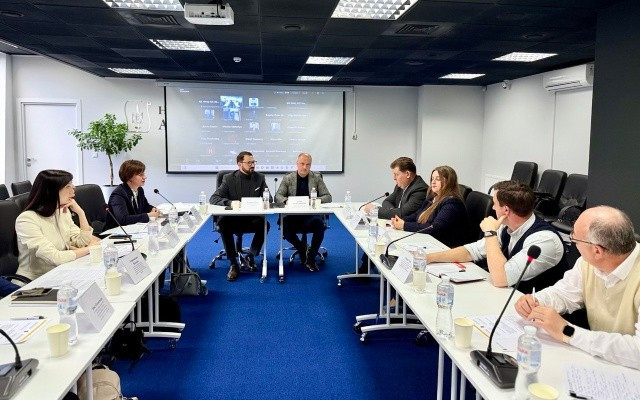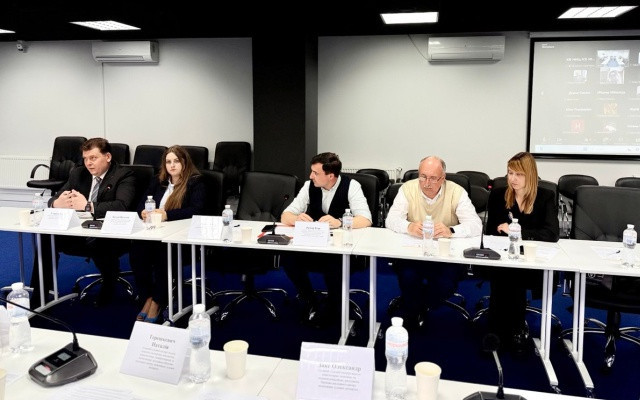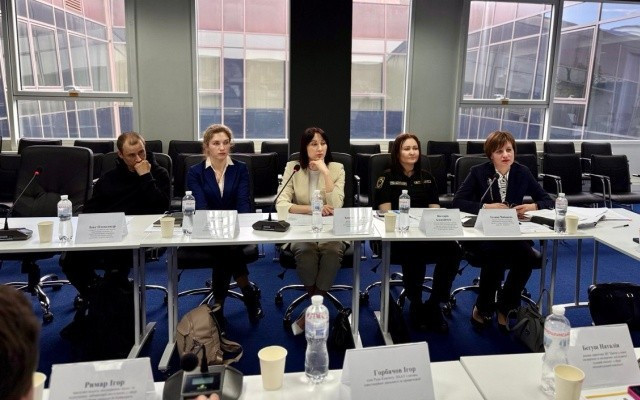
Forensic expertise and business: what advocates need to know in 2025



Forensic examinations remain a key tool in criminal proceedings against businesses. However, practitioners face new challenges, ranging from inconsistencies in the property seizure procedure to difficulties in formulating requests and gathering relevant evidence.
The Ukrainian National Bar Association of Ukraine organized and held a round table on «Advocacy and Business: Current Trends in Forensic Expertise in 2025», organized by the UNBA Committee on Investment and Privatization.
The event was attended by representatives of leading expert institutions in Ukraine: the Scientific and Research Center for Independent Forensic Expertise, the State Enterprise «Center for Forensic Expertise and Expert Research», the Kyiv branch of the National Scientific Center «Institute of Forensic Expertise named after Honored Professor M.S. Bokarius», the Kyiv Scientific and Research Center for Forensic Expertise of the Ministry of Internal Affairs of Ukraine, and the Scientific Research Center for Forensic Expertise in the Field of Information Technology and Intellectual Property.
The event was moderated by the head of the UNBA committee, Andriy Shabelnikov, and his deputy, Oleg Vdovichen.
Opening the discussion, A. Shabelnikov emphasized the particular importance of expert examinations as an essential means of evidence in criminal proceedings against businesses. «In the context of martial law, we are seeing new challenges for the business community, and advocates must be armed with knowledge of current trends in forensic expertise in order to effectively protect their clients' interests», he stressed.
During the round table, participants discussed the appointment and conduct of forensic economic expertise in criminal proceedings, the specifics of determining the amount of damage caused to businesses as a result of armed aggression, the admissibility of electronic evidence obtained through OSINT (open source intelligence), the specifics of conducting forensic psychological examinations using a polygraph, and the responsibility of experts.
Igor Starodubov, director of the State Enterprise «Center for Forensic Examination and Expert Research», spoke about the specifics of working with property damaged as a result of the war. According to him, despite the availability of a forensic expert's opinion on the value of the property, the Procedure for the write-off of state property, approved by the Cabinet of Ministers on November 8, 2007, No. 1314, provides for the mandatory review of the appraiser's report by either a self-regulatory organization of appraisers or the State Property Fund. or the State Property Fund. The conclusion of the court expert does not meet these requirements and is therefore insufficient. As an example, he cited the case of damaged court infrastructure in Borodianka and Lviv. In order to write off the damaged premises, it was still necessary to consult appraisers, even though the expert's conclusion was already ready. However, he emphasized that in court proceedings, the expert's conclusion carries more weight as evidence, unlike the appraisal report, which the court may disregard.
Natalia Klimova, head of the intellectual property research department at the Bokarius Institute of Forensic Expertise, emphasized the complexity of IP expertise due to the interdisciplinary nature of such objects. According to her, IP objects are intangible, but often combine features of different legal forms. For example, a label can be a trademark, an industrial design, and contain elements of copyright. This requires the participation of experts with several specializations or the formation of commissions. N. Klimova also drew attention to the importance of the correct preparation of materials — there have been cases where the list of objects in the accompanying documents did not correspond to the samples actually provided, or the questions in the ruling did not relate to the objects submitted for examination. In such cases, the expert must initiate a request for clarification.
The problem of incorrectly formulated questions to experts was raised by the advisor to the director of the Center for Forensic Expertise, Natalia Begush. She noted that advocates who do not specialize in intellectual property cases often submit overly general or legally evaluative requests — for example, regarding the very fact of a violation of rights. Experts cannot answer such questions, so it is important to consult with the institution in advance regarding the correct wording. Also, according to her, it is advisable to check whether the institution has an expert with the necessary specialization so as not to waste time. The representative of the Center also focused separately on the problems of proper evidence collection: copyright objects often exist only in digital form or on the Internet, and without a proper physical medium, an expert will not be able to conduct a full investigation.
Following the roundtable, participants concluded that there is a need to further improve legislation in the field of forensic expertise and strengthen the role of the legal profession in ensuring the legality of such expertise.
© 2025 Unba.org.ua Всі права захищені
"Національна Асоціація Адвокатів України". Передрук та інше використання матеріалів, що розміщені на даному веб-сайті дозволяється за умови посилання на джерело. Інтернет-видання та засоби масової інформації можуть використовувати матеріали сайту, розміщувати відео з офіційного веб-сайту Національної Асоціації Адвокатів України на власних веб-сторінках, за умови гіперпосилання на офіційний веб-сайт Національної Асоціації Адвокатів України. Заборонено передрук та використання матеріалів, у яких міститься посилання на інші інтернет-видання та засоби масової інформації. Матеріали позначені міткою "Реклама", публікуються на правах реклами.